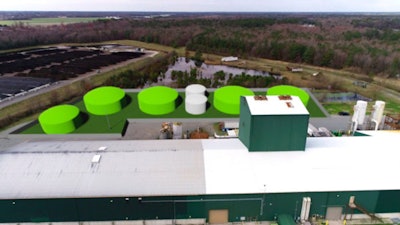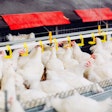
Bioenergy DevCo, a global developer of sustainable waste processing plants, will take over management of Perdue Farms’ AgriRecycle poultry waste composting facility located in Seaford, Delaware, according to a deal announced November 21.
“Working with house-hold name food and agriculture companies like Perdue, as well as with major municipalities like Howard County, Maryland demonstrates that leaders in government and business are seeing the value in our approach to anaerobic digestion,” Shawn Kreloff, CEO of BioEnergy DevCo, said.
The AgriRecycle facility processes more than 30,000 tons of organic material annually, made up of byproducts from numerous poultry farms and chicken processing plants located nearby. Built in 2001, the facility has converted more than 860,000 tons of litter into organic fertilizer.
A natural and safe way to convert waste
As a part of the deal, Bioenergy DevCo will also be responsible for the construction of an anaerobic digestor (AD) that converts organic waste into renewable natural gas and a digestate soil amendment.
Anaerobic digestion is a natural process that uses microorganisms to break down biodegradable material, such as livestock manure, municipal wastewater solids and food waste, in the absence of oxygen. The methane extracted by the digestor could power up to 5,000 homes, while the organic fertilizer produced could be used to grow new crops.
Because it takes place in an entirely enclosed system that does not require any sort of combustion, anaerobic digestion is safer and more sustainable than current waste processing methods.
“The value of anaerobic digestion, particularly with poultry litter, is that it prevents high levels of phosphorous and nitrogen from seeping into compost products and the surrounding groundwater,” Kreloff explained. “The ability to manage phosphorous and nitrogen in this way is a major environmental asset to the region, and this facility will help ensure local farms can participate in a cleaner, more sustainable poultry industry in the Delmarva Peninsula.”
Like what you just read? Sign up now for free to receive the Poultry Future Newsletter

















